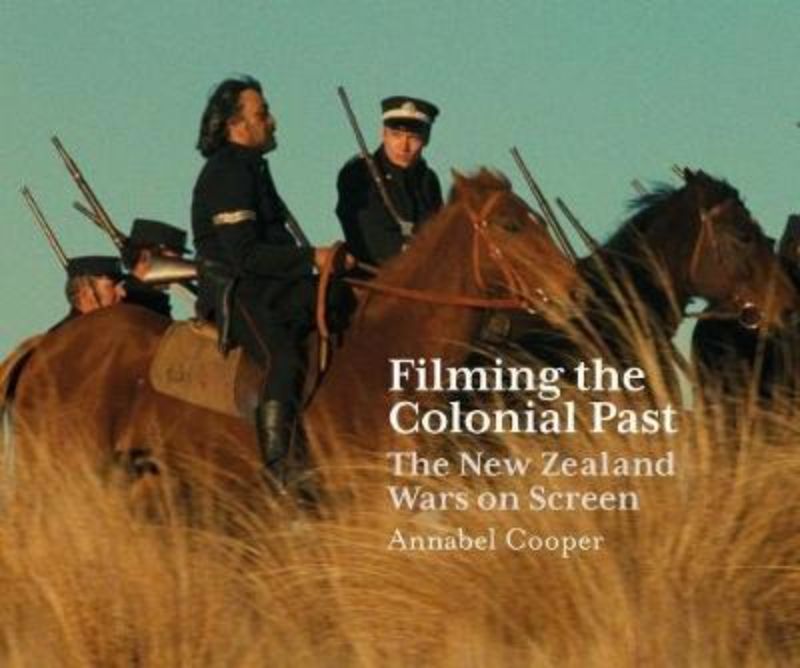Description
Explore the captivating narrative of New Zealand's history with "Filming the Colonial Past," authored by Annabel Cooper. This engaging paperback explores the New Zealand Wars, a defining chapter in the nation's legacy, illustrating how filmmakers have chronicled these conflicts over the past 90 years. Spanning from early silent films to contemporary digital storytelling, this book reveals the evolving relationship between filmmakers and the rich cultural tapestry of M?ori and P?keh? perspectives.
With dimensions of 240 x 200 mm and featuring 304 pages of insightful content, readers will discover how notable filmmakers like Rudall Hayward, and productions from the 1970s through the 1990s, have uniquely portrayed these pivotal historical events. The text discusses how filmmakers adapted their narratives by collaborating with M?ori communities, illustrating a significant shift in representation and storytelling dynamics in the film industry.
The book further delves into the impact of deregulation in the late 20th century, which opened doors for M?ori filmmakers to assert their creative control, leading to a vibrant cultural resurgence in filmmaking today. Through case studies of documentaries like the New Zealand Wars series and feature films such as Vincent Ward’s "River Queen" and Geoffrey Murphy’s "Utu," readers will gain an understanding of how film serves as both a medium for historical reflection and cultural re-examination.
Whether you are a film enthusiast, a history buff, or interested in M?ori culture, "Filming the Colonial Past" is an invaluable resource. Order now for prompt delivery and immerse yourself in the stories that shaped a nation.
CONDITION: Brand New
Dimensions: 240 x 200 mm
Pages: 304
Bind: paperback
Author: Annabel Cooper Publisher: Otago University Press
The New Zealand Wars were defining events in the nation’s history. Filming the Colonial Past, an engaging new book from Annabel Cooper, tells a story of filmmakers’ fascination with these conflicts over the past 90 years. From silent screen to smartphone, and from P?keh? adventurers to young M?ori songwriters, filmmakers have made and remade the stories of this most troubling past. When Rudall Hayward went to Rotorua, Whakat?ne and Te Awamutu to make his two versions of Rewi’s Last Stand (1925, 1940) and The Te Kooti Trail (1927), he quickly found that the tangata whenua he relied on for making his films would help to shape the stories. By the time of the renewed interest in the New Zealand Wars in the 1970s and early 80s, thinking about race, nation and empire was undergoing a sea-change. The makers of television drama (including The Governor) and independent film (Geoff Murphy’s Utu) set out actively to engage with M?ori advisers and performers. In the late 1980s and 90s, screen industry deregulation brought a new set of challenges. Filming the Colonial Past shows how documentaries – notably the New Zealand Wars series of 1998 – and feature films – Vincent Ward’s River Queen and Rain of the Children – negotiated these hurdles. Meanwhile, M?ori working on P?keh?-led productions honed their skills. Today, the growth of M?ori creative control, enabled by the diminishing cost of digital media and the expansion of platforms, signals a new era. From these sources come document
With dimensions of 240 x 200 mm and featuring 304 pages of insightful content, readers will discover how notable filmmakers like Rudall Hayward, and productions from the 1970s through the 1990s, have uniquely portrayed these pivotal historical events. The text discusses how filmmakers adapted their narratives by collaborating with M?ori communities, illustrating a significant shift in representation and storytelling dynamics in the film industry.
The book further delves into the impact of deregulation in the late 20th century, which opened doors for M?ori filmmakers to assert their creative control, leading to a vibrant cultural resurgence in filmmaking today. Through case studies of documentaries like the New Zealand Wars series and feature films such as Vincent Ward’s "River Queen" and Geoffrey Murphy’s "Utu," readers will gain an understanding of how film serves as both a medium for historical reflection and cultural re-examination.
Whether you are a film enthusiast, a history buff, or interested in M?ori culture, "Filming the Colonial Past" is an invaluable resource. Order now for prompt delivery and immerse yourself in the stories that shaped a nation.
CONDITION: Brand New
Dimensions: 240 x 200 mm
Pages: 304
Bind: paperback
Author: Annabel Cooper Publisher: Otago University Press
The New Zealand Wars were defining events in the nation’s history. Filming the Colonial Past, an engaging new book from Annabel Cooper, tells a story of filmmakers’ fascination with these conflicts over the past 90 years. From silent screen to smartphone, and from P?keh? adventurers to young M?ori songwriters, filmmakers have made and remade the stories of this most troubling past. When Rudall Hayward went to Rotorua, Whakat?ne and Te Awamutu to make his two versions of Rewi’s Last Stand (1925, 1940) and The Te Kooti Trail (1927), he quickly found that the tangata whenua he relied on for making his films would help to shape the stories. By the time of the renewed interest in the New Zealand Wars in the 1970s and early 80s, thinking about race, nation and empire was undergoing a sea-change. The makers of television drama (including The Governor) and independent film (Geoff Murphy’s Utu) set out actively to engage with M?ori advisers and performers. In the late 1980s and 90s, screen industry deregulation brought a new set of challenges. Filming the Colonial Past shows how documentaries – notably the New Zealand Wars series of 1998 – and feature films – Vincent Ward’s River Queen and Rain of the Children – negotiated these hurdles. Meanwhile, M?ori working on P?keh?-led productions honed their skills. Today, the growth of M?ori creative control, enabled by the diminishing cost of digital media and the expansion of platforms, signals a new era. From these sources come document

